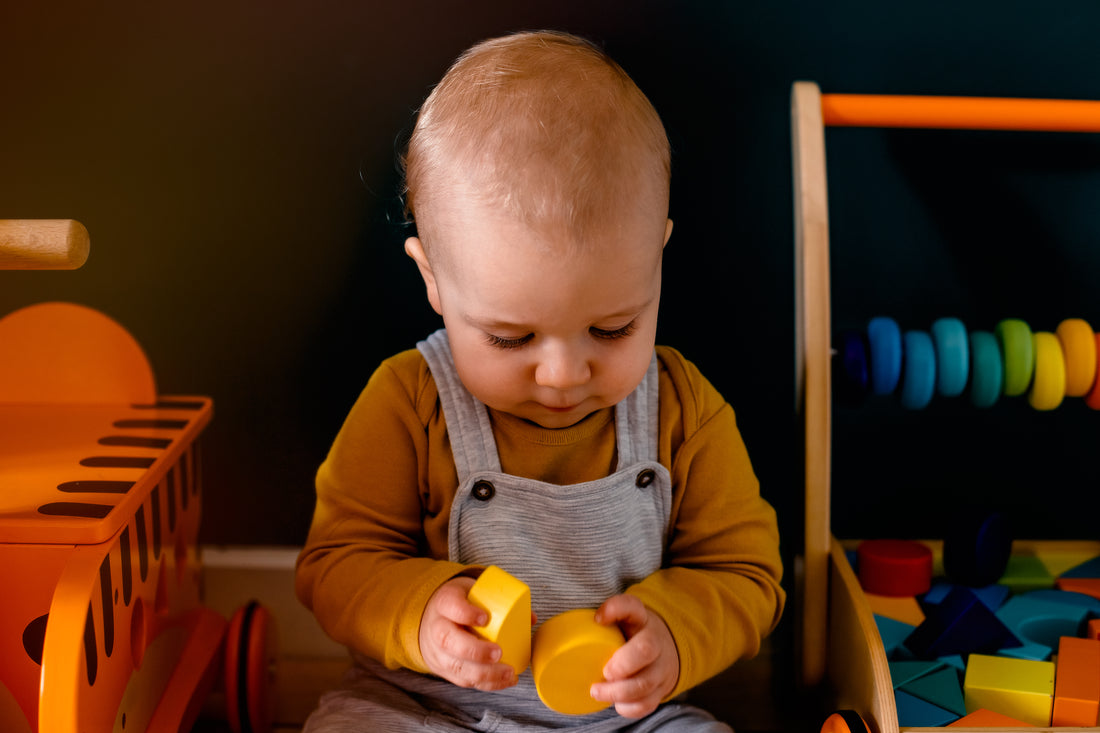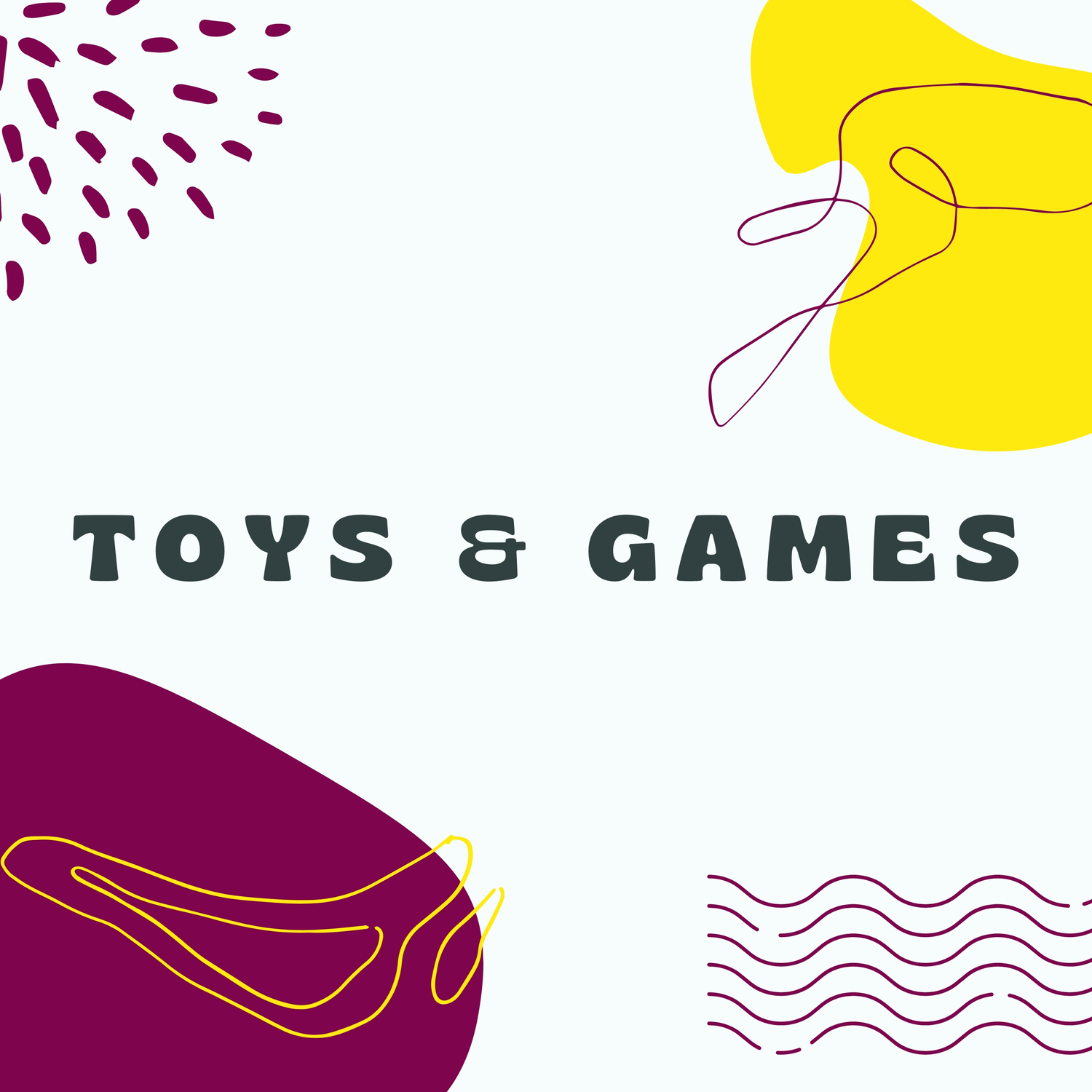
Montessori Toys: A Gateway to Enriched Learning While Travelling
Nina PaulusShare
Hello, fellow parents! Today, let's discuss a common challenge: keeping our children entertained during those long hours of travel or seemingly endless rainy days indoors. While handing them a tablet or phone might be the easiest route, have you ever considered an engaging and educational alternative? With their multifaceted approach to fun and learning, Montessori toys are just that solution!
Montessori Toys: Embarking on an Educational Journey
From the first toy, a child grasps in their hands to the more complex ones they learn to master, toys play a crucial role in childhood development. However, not all toys are created equal. Among the vast options available today, Montessori toys are exceptional offerings that seamlessly blend play and learning, aligning perfectly with the Montessori philosophy. These are not mere playthings; they are purposeful tools that promote a child's learning journey most enjoyably and effectively.
Inspired by the educational philosophy of Maria Montessori, an Italian physician and educator, Montessori toys introduce a fresh perspective on playtime. The Montessori method is characterised by self-directed activities, hands-on learning, and collaborative, imaginative play mirrored in these thoughtfully designed toys. They transcend the boundaries of mere entertainment, serving as intentional creations that stimulate a child's intellect and imagination, encouraging independent learning and fostering a deep-seated love for exploration.
At the heart of Montessori's philosophy lies an emphasis on natural, sustainable living - a principle that resonates in the design of Montessori toys. Crafted predominantly from natural, sustainable materials, like wood, these toys promote a connection with the natural world from an early age. This commitment to sustainability benefits our planet and enhances a child's tactile experience, making playtime both enjoyable and instructive.

The Science Behind Montessori Toys
As we delve into Montessori toys, we must understand the science behind them. These toys are not randomly designed. They are meticulously crafted based on the Montessori method's psychological principles, which emphasise the child's natural stages of development. The Montessori toys are tailor-made to help children develop concentration, coordination, independence, and a sense of order.
In the Montessori philosophy, the environment plays a crucial role in a child's development. Maria Montessori referred to it as "the prepared environment," which should be nurturing, responsive, and adapted to meet the child's developmental needs. This is where Montessori toys play an essential role. They serve as the prepared environment's building blocks, stimulating a child's natural desire to learn and explore.
Sustainability: A Core Aspect of Montessori Toys
One of the distinguishing characteristics of Montessori toys is their commitment to sustainability. Montessori toys are typically made from natural materials, making them environmentally friendly and adding an extra layer of safety for children. In contrast to plastic toys that can contain harmful chemicals, wooden toys are a safer, more eco-friendly choice.
But the benefits don't stop at safety and sustainability. Using natural materials like wood in Montessori toys offers a unique sensory experience for children. The textures, the weight, and the natural scent of wood stimulate a child's senses in a way that plastic toys can't replicate. This sensory experience further enhances a child's interaction with the toys, promoting a more profound and enriching learning experience.
Montessori Toys: Aiding in the Mastery of Practical Life Skills
While many traditional toys focus primarily on fun, Montessori toys go further to include practical life skills. These can range from tying shoelaces to pouring water, fastening buttons, or slicing wooden fruit with a pretend knife. These toys serve as replicas of real-world objects, allowing children to mimic and practice the daily tasks they see adults doing.
These practical life toys are an excellent way for children to develop hand-eye coordination, fine motor skills, and problem-solving abilities. They also foster a sense of independence, self-efficacy, and self-confidence in children, encouraging them to take up real-world tasks and challenges easily.
Montessori Toys and Their Role in Developing Social Skills
Montessori toys aren't just about cognitive development; they also facilitate the growth of social skills in children. Many Montessori toys are designed for shared play, where two or more children can play together. Whether it's a puzzle that requires cooperation or a pretend-play set that encourages role-playing, these toys promote communication, collaboration, and empathy among children.
In a nutshell, Montessori toys aren't merely toys but powerful developmental tools in disguise. By combining the principles of the Montessori method with the natural joy of play, these toys serve as an enriching resource for your child's learning journey.

Montessori Toys: Nurturing Curiosity and Growth
Montessori toys serve a dual purpose. They provide entertainment and stimulation for children, keeping them engaged and absorbed. But beyond their surface-level appeal, they serve as practical educational tools, pivotal in a child's holistic development. As children engage with these toys, they actively learn and absorb valuable lessons that extend far beyond the confines of a play session.
Self-guided exploration lies at the core of the Montessori method, and this philosophy is reflected in the design of Montessori toys. They create an environment encouraging children to learn independently, delve into tasks at their own pace, and seek answers independently. This approach nurtures a child's self-confidence, their ability to embark on self-started endeavours, and most importantly, fosters an innate love for learning. These qualities will serve children throughout their educational journey and help them navigate the world as lifelong learners.
The Transformative Power of Educational Play
Montessori-inspired toys encapsulate the concept of educational play. They stimulate children's senses, ignite curiosity, and foster problem-solving abilities. As children interact with these toys, they go beyond mere play. They embark on a journey of exploration, experimentation, and learning. The beauty of wooden Montessori toys lies in their simple yet effective design. From simple puzzles and shape sorters for toddlers to object permanence boxes and other intricately designed equipment for older kids, each toy is purposefully crafted to enhance specific skills or cognitive abilities. Whether familiarising themselves with shapes and patterns, honing fine motor skills, or understanding the concept of object permanence, these toys offer an engaging, fun-filled learning adventure. Through their simplicity and effectiveness, Montessori toys transform playtime into an enriching educational journey, imparting valuable life skills that extend beyond the four walls of a classroom. As parents, providing our children with a range of purposeful play opportunities is one of the most rewarding gifts we can offer, setting them on the path to becoming thoughtful, curious, and passionate learners.

Age-Appropriate Montessori Toys: Tailored to Your Child's Learning Journey
Selecting suitable Montessori toys might seem daunting, but it needn't be. The first step is to consider your child's age and developmental stage. Next, think about their interests. For instance, consider blocks or magnetic sets if they have a building propensity. If they're into solving puzzles, go for a bead maze or a more complex puzzle.
Montessori toys have a beautiful, purposeful design ethos: they can flexibly cater to children at different ages and stages of their development. Their versatility is a testament to the Montessori education principle that learning is a continuous journey, evolving with the child. Let's delve deeper into how these toys are adapted for various age groups.
Toddlers (1-3 Years): Discovering the World Around Them
When our little ones first begin to explore the world around them, everything is new and exciting. At this age, children's interest is piqued by colours, shapes, and textures. They're starting to develop their fine motor skills and understanding of the environment. This is where Montessori toys like stacking cups, shape sorters, and the object permanence box come in. These toys encourage toddlers to grasp, sort, and stack, helping your little one to develop hand-eye coordination, fine motor skills, and cognitive abilities.

Preschoolers (3-5 Years): Fine-tuning Skills and Broadening Horizons
As our kids grow into preschoolers, they are ready for more complex tasks. Their fine motor skills have improved significantly, and their cognitive abilities are expanding. Montessori toys like lacing cards and puzzles with more pieces are perfect for this age group. They enhance fine motor skills, teach patience and concentration, and develop cognitive flexibility - the ability to switch between thinking about two and multiple concepts simultaneously.
Kindergarten to Elementary Age (5+ Years): Fuelling Imagination and Creativity
Once children reach kindergarten and elementary age, they're ready for even more advanced Montessori toys. By this time, their fine motor skills are more refined, and their spatial awareness and logical reasoning abilities are developing rapidly. Toys like magnetic building sets, advanced bead maze puzzles, and Montessori-inspired practical life materials like woodworking sets or weaving frames are ideal. These toys stimulate spatial awareness, creativity, and advanced problem-solving abilities. Also, Montessori-inspired educational toys like maps, clocks, and calendars are designed to teach kids about geography and time management in a fun, hands-on way.
While choosing these toys, don't overlook the price. Montessori toys, especially wooden ones, can vary significantly in cost. However, there are plenty of high-quality options available at affordable prices. It's all about striking a balance between cost and the value of the educational experience that the toy provides.

In Conclusion: An Investment in Your Child's Future
Montessori toys aren't merely about keeping your child entertained. They invest in your child's learning journey, offering an enriching educational experience that can significantly impact their development. Whether honing fine motor skills, stimulating their senses, or promoting independent learning, the benefits of Montessori toys are manifold.
So, the next time you're shopping for toys or planning a journey, consider adding a few Montessori toys to your child's collection. They're engaging, fun, and, most importantly, they provide a valuable learning experience. Your travels might become a little more peaceful, and your child's playtime is much more enriching!




